

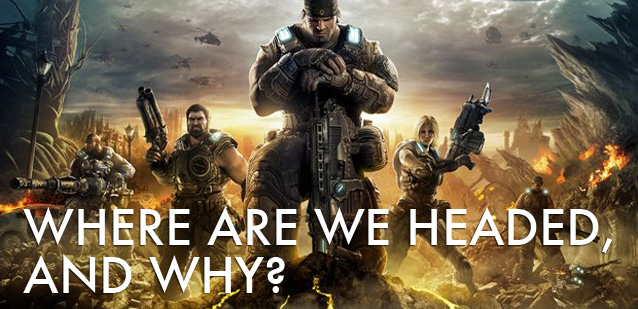
Video games have come a long way; Pong, now — Gears of War. It’s pretty amazing how fast it has happened, actually. As I sit and write this, companies all around the world are hard at work creating new worlds and styles of gameplay for us to experience. However, what this article is meant to discuss is the growing trend of realism in games, and whether or not this is a good thing for us as gamers. Everything ranging from updated technology to innovations in development such as “cinematic experiences” are changing the playing field, and it’s better to question where we’re headed now rather than later!
So, what is a “cinematic experience”, you ask? Well, a prime example can be found in a game called Heavy Rain. There are an abundance of quicktime events in this game, which utilize on-screen representations of the buttons on your controller. If you press the buttons correctly, and in the order shown, you win. The question is raised then, “Is this really a game anymore?” Many would argue that it isn’t, and vice-versa.
Games strive more and more to look real and gritty, but what made gaming great in the first place was that it provided a means of escape from the real world – if only for a little while!Now, bear in mind, this doesn’t apply to the entirety of said games. There is plenty of content to delve into otherwise, and I by no means want to turn this into a rant on cinematic experiences. I think there is room for every convention of gaming in today’s world, modern or old. What seems to be the problem, though, is that the use of these segments is becoming somewhat gratuitous. The God of War franchise really brought quicktime events into the limelight, and their usage has been growing at an astronomical pace ever since. With that said, God of War did what others are doing wrong; God of War only used quicktime events to make unplayable scenarios playable… This applies to certain, more ‘risqué’, scenes in each God of War game as well.
Anyways, moving back to the subject-at-hand – I don’t think the problem lies just in the creation of gameplay; I think it’s in how technology has grown as well. Games strive more and more to look real and gritty, but what made gaming great in the first place was that it provided a means of escape from the real world – if only for a little while! I don’t mean to sound like another “angry-at-the-world teenager”, so if I come across that way I am sorry, but I can with an absurd amount of certainty proclaim that I am not the only one who feels this way. The worlds and environments we are allowed to experience through gaming are unlike anything else, and we need to realize – very quickly – that video games are the only medium through which we can immerse ourselves to an extremely high degree.
I wanted to bring into the limelight a game I have been playing: Kingdoms of Amalur: Reckoning. We’ve discussed realism and why it isn’t the most savory “primary goal”, but ‘Reckoning’ really is a perfect example of my gripe with the growing need for life-like experiences. Technology has grown so much; it seems we fail to even think about what we are doing to ourselves. Take draw-distances for example: without them the world is even more of a known experience. You know what’s coming, and it takes some of the mystery away from any given game. This is one of the many reasons I enjoy ‘Reckoning’, and while it may seem a bit frivolous, perhaps you can see the perspective from which I am coming.
The idea here is that while games will obviously improve, grow, and become stronger catalysts for change in all forms of media, we have to make sure each step we take is going in the right direction.One could argue that we have had a huge influx of RPGs lately, but many have been linear, and to call them exploration-based would just be wrong. Skyrim seems to be the only RPG in quite a while to the nail formula just right; linearity is an entirely different discussion, though. The idea behind this thought is that with most games we see lately, there is not a personality, but a thin façade of discovery masking them. We as consumers have learned to accept things the way they are, but for me, great graphics and copious amounts of dialogue don’t bring a world to life – it’s the environment, lore, and characters.
The number of platformers lately has been sad to say the least. The trio that made the Playstation 2 system great is now broken and battered, and while Sly Cooper will be returning with Thieves of Time, Insomniac has announced they will be looking to work on more than just Sony’s console—we’ll likely be seeing less of Ratchet and Clank. Jak and his faithful companion, Daxter, have been sorely missed; seven years later, and still no signs of renaissance for a main series entry from the two heroes. I feel that these three franchises – if not all platformers – share some traits that we don’t see nearly often enough. They still hold some presence on the handheld platforms of today’s generation, but there is very little traction in the console side of things; I believe Rayman Origins is one of the only well-received platformers to come out in recent days.
The idea here is that while games will obviously improve, grow, and become stronger catalysts for change in all forms of media, we have to make sure each step we take is going in the right direction. Right now we seem to be heading towards hyper-sexualization of women in video games, violence, and many other unsavory things: it’s our responsibility as users of this medium to change that. Video games aren’t movies, and vice-versa. I think it would be wise to remember that just because something is prettier doesn’t mean that it’s better for you, and with the next generation of technology approaching, we’ll need to remember that posthaste. With all of that said, I’ll leave the rest of your decision-making (because they ARE your decisions) to yourselves. Hopefully I will – in some small way – have persuaded your next comment on a piece written about one of the many topics encompassed in this article’s text.

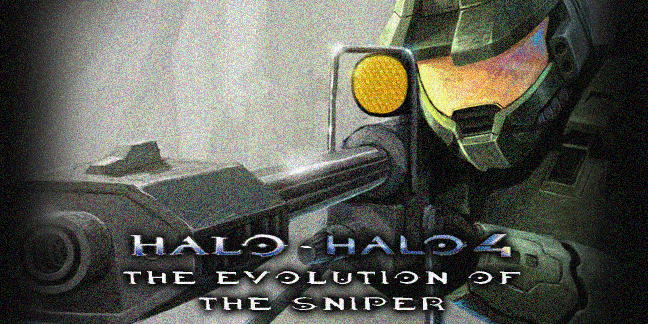


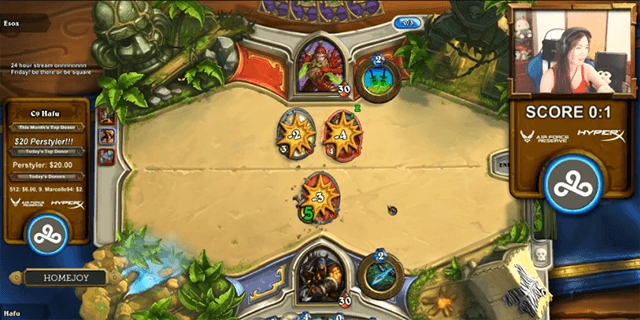 How Big Is Twitch.tv? You Won't Believe These Stats & Facts
How Big Is Twitch.tv? You Won't Believe These Stats & Facts Check Out These Animated Easter Eggs Hidden in Google Hangouts
Check Out These Animated Easter Eggs Hidden in Google Hangouts Daylight Wiki – Everything you need to know about the game .
Daylight Wiki – Everything you need to know about the game .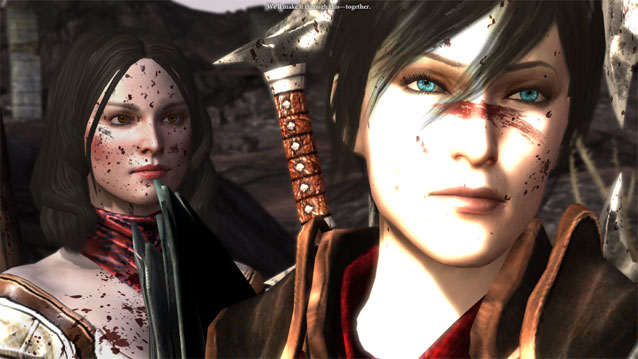 Voice Acting and the Future of RPGs
Voice Acting and the Future of RPGs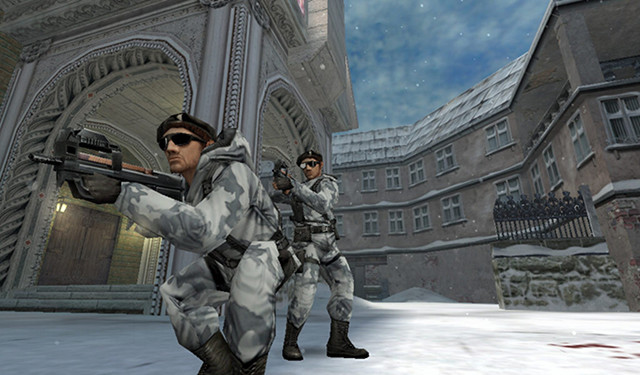 10 Incredible Steam Games You Can Buy For Under $10
10 Incredible Steam Games You Can Buy For Under $10